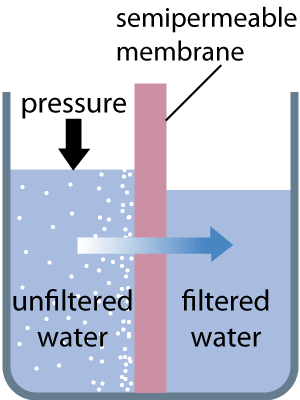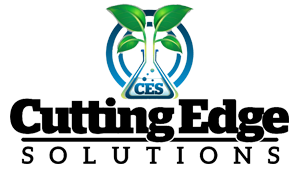
Osmosis occurs when a solution goes from a lower concentration to a higher concentration. Driven by a need to equalize the amount of solute concentration on both sides of the membrane, it reduces the free energy of the system. Osmosis is the natural flow of a pure solvent or solution, and an external pressure is needed to reverse this flow. This pressure used by reverse osmosis (RO) counteracts the osmotic pressure. The pressurized side has a solute, and the other side consists of pure solvent.
This water purification technology uses a semipermeable membrane that excludes large ions or molecules from passing through it, but the membrane does allow passage of smaller components of like solvents in solution. The efficiency of this filtration and separation system is dependent on pressure, water flux rate and solute concentration. RO is mainly used to produce pure potable water. The Hydro Logic Stealth 200 RO system produces 200 gallons of ultra pure water with a low PPM each day. It removes 98% of chlorine and other contaminates and wastes only 25% of water that is less than other RO systems on the market. Besides a wall mount bracket, the kit includes customized gardening and hydroponics components to quickly start purifying your water. The TallBoy Dechlorinator & Sediment filter system removes 99% of chlorine and 90% of rust, silt and sediment. Pleated sediment and membrane filters are also available on the Hydro Logic’s website.
Purified water is absolutely essential for hydroponic and indoor gardening to grow healthy prized fruits and plants. Since water is at the root of hydroponics, serious gardeners value the nutrients, promoters, and additives carried by the pure water that bathe the root zones of plants. Ultra pure water remains the only option for organic gardeners using bio-extraction or compost tea brewing. Gardeners also use living microorganisms such as fungi, nematodes, trichodema, beneficial bacteria and mycorrizae that need water free of chlorine to flourish and survive. The cost of a water purification system using RO pays for itself by preventing the negative effects on plants from unfiltered water and of hauling pure water.
Spring and well water sources often contain elevated levels of magnesium, calcium, sulfer, iron and manganese that are too heavy for hydroponic gardening and keep nutrients from nourishing the plants. Sulfur and iron in water have an offensive odor and cause algae growth. Fluoride is a hazardous waste product affecting seed germination and 34 enzymes in plants. Volatile organics, increased total dissolved solids, bacteria, nitrates, herbicides and pesticides are sources of contamination and affect plant growth.
Testing your water to determine its quality is important, and there are free water testing kits and reports available online through water companies or municipalities. If your water has over 50 PPM or 3 GPG (grains per gallon) of magnesium and calcium, the water is too hard and needs a filtration system. Increased hardness will stop nutrients from entering the plants and is the main problem with using water for indoor gardening and hydroponics.





















 © 2017
© 2017
Recent Reviews